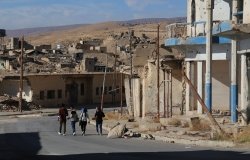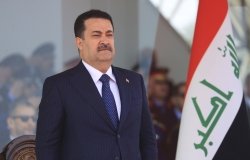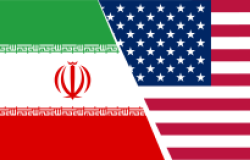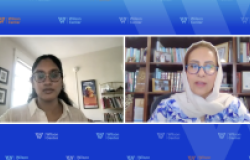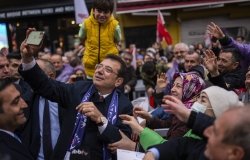Book Talk - <i>Iran's Long Reach: Iran as a Pivotal State in the Muslim World</i>
Speakers: Suzanne Maloney, Senior Fellow at the Brookings Institution, Saban Center for Middle East Policy; David Ignatius, Washington Post Columnist, Associate Editor and Novelist; Daniel Brumberg, Acting Director of USIP's Muslim World Initiative and Co-Director, Georgetown University's Democracy and Governance Program; and chaired by Haleh Esfandiari, Director of the Middle East Program at the Woodrow Wilson Center
Overview
The Middle East Program cosponsored an event with the United States Institute of Peace marking the release of Iran's Long Reach: Iran as a Pivotal State in the Muslim World, by Suzanne Maloney, Senior Fellow at the Brookings Institution's Saban Center for Middle East Policy. Joining Maloney for comments on the book were Daniel Brumberg, Acting Director of USIP's Muslim World Initiative and Co-Director, Georgetown University's Democracy and Governance Program; and David Ignatius, Washington Post Columnist, Associate Editor and Novelist.
Suzanne Maloney centered her discussion on what she considered to be the top four things any policy maker should know about Iran. The first of these points was that for Iran, ideology does matter. Iran is the first modern Muslim theocracy and as such, religion remains central to the identity and legitimacy of the state, particularly through the institution of the Supreme Religious Leader, which has expanded and become entrenched. Iran uses a multifaceted cultural and religious authority to expand its influence; though widely associated with terrorism and subversion, Khomeini in fact advocated the spread of the Revolution through the activities of citizens and the clerical network, for example by using the Hajj pilgrimage as political theatre. Ahmadinejad has continued this trend through the use of explosive anti-Israeli rhetoric; though always a part of post-Revolutionary discourse, Ahmadinejad invocation of the Palestinian cause has made him a popular figure on the Arab Street, something that even Khomeini never achieved.
Despite these policies, Maloney cautioned in her second point that the role of ideology should not be overstated; ideology for Iran has remained negotiable and subject to the pragmatic concerns of regime survival. Though Messianic rhetoric is invoked, particularly towards Israel and the United States, this rhetoric is manipulative and not determinative of Iranian actions. A third important point is that Iranian state has a hostile conception of the outside world, and views assertiveness and bellicosity as a substitute for actual power. This aversion to compromise has defined the Iranian approach to international issues, particularly its nuclear program, as the state maintains a conviction that acceding to international demands will be read as weakness. Finally, Maloney insisted that Iran is not immutable. A youthful population and a generational change in leadership have had a major impact on Iranian policies, seen in an implicit liberalization of sociocultural restrictions and through an unprecedented alignment of the Iranian political elite behind the idea of direct dialogue with the United States.
Daniel Brumberg agreed with Maloney's pragmatic approach. He sees Iranian foreign policy as in some respects similar to that of Israel - very much a function of domestic politics. As such, ideology becomes important not by fostering an extremist view of the outside world, but by informing internal power struggles that in turn effect foreign affairs, fissures that will play out particularly during the upcoming election season. He also noted that the role of ideology has changed, with Ahmadinejad in particular relying on Third World-ist rhetoric as much as on Islam, paving the way for important links with non-Muslim states like Venezuela, China, and Russia.
David Ignatius discussed the attitudes of normal Iranians that he has been privy too during visits to the region, centered on a strong sense that, mostly as a result of the Iraq War, Iran is a rising power and America is a declining power. This conception leads to a sense that Iran is in a temporary position of strength during which it can improve the long-term regional situation of the country, particularly in regards to Iraq, sensitive not because of Shi'a ideology, but because of the memory of the devastating Iran-Iraq war and Iran's determination never again to be in a situation of weakness in regards to its neighbor.
Hosted By

Middle East Program
The Wilson Center’s Middle East Program serves as a crucial resource for the policymaking community and beyond, providing analyses and research that helps inform US foreign policymaking, stimulates public debate, and expands knowledge about issues in the wider Middle East and North Africa (MENA) region. Read more
Thank you for your interest in this event. Please send any feedback or questions to our Events staff.






